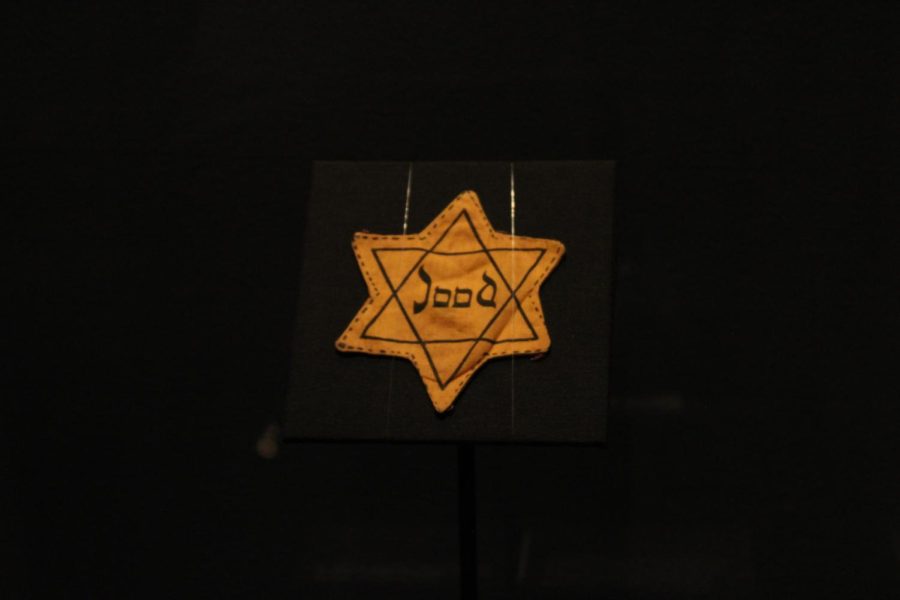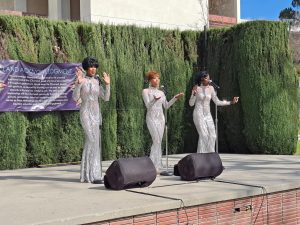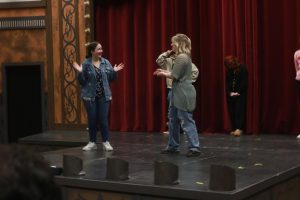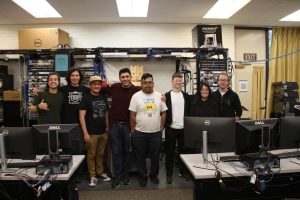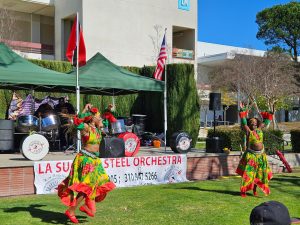Ronald Reagan Presidential Library exhibit promotes understanding during Jewish American Heritage Month
A yellow Star of David patch worn to identify Jewish people in WWII Europe on display at the Ronald Reagan Presidential Library’s Auschwitz exhibit. Photo credit: Jaya Roberts
May 31, 2023
On March 24, the Ronald Reagan Presidential Library launched its “Auschwitz: Not long ago. Not far away” exhibit. The exhibit is scheduled to run through August 2023, and was open throughout the duration of Jewish American Heritage Month.
The month of May is recognized as Jewish American Heritage Month, a designation established by President George W. Bush on April 20, 2006.
This acknowledgment of Jewish Americans stemmed from resolutions passed in the U.S. House of Representatives in 2005 and the U.S. Senate in 2006. These resolutions were introduced by Florida Rep. Debbie Wasserman Schultz and Pennsylvania Sen. Arlen Specter.
As of 2020, Pew Research Center estimates that Jewish Americans account for approximately 5.8 million individuals and make up around 2.4% of the adult American population. Following the designation of Jewish American Heritage Month, many lawmakers and activists have used the month of May to honor Jewish Americans, their history, their stories and their contributions to the nation.
The Holocaust stands as a significant and harrowing chapter in the history of the Ashkenazi, or European Jewish, people. While the horrors experienced during World War II affected various groups, the Jewish population carried the enduring impact of the hatred from 1933 to 1945, and the legacy of that hatred lingers to this day.
The guided tour of the Reagan Library’s “Auschwitz: Not long ago. Not far away” exhibit encompasses more than 40 stops. Along the way, visitors witness World War II artifacts, interviews with Holocaust survivors, maps, photographs and other remnants from this painful period of history.
The exhibit not only delves into the atrocities and experiences of the children and families sent to Auschwitz —a Nazi concentration camp — but also sheds light on the origins of antisemitism and the longstanding traditions and history of Jewish culture.
Among the exhibited artifacts are shoes retrieved from concentration camps after liberation. The exhibit also showcases the striped uniform that prisoners of the Nazi concentration camps were forced to wear. This uniform garnered recognition after the release of the 2008 film “The Boy in the Striped Pajamas.”
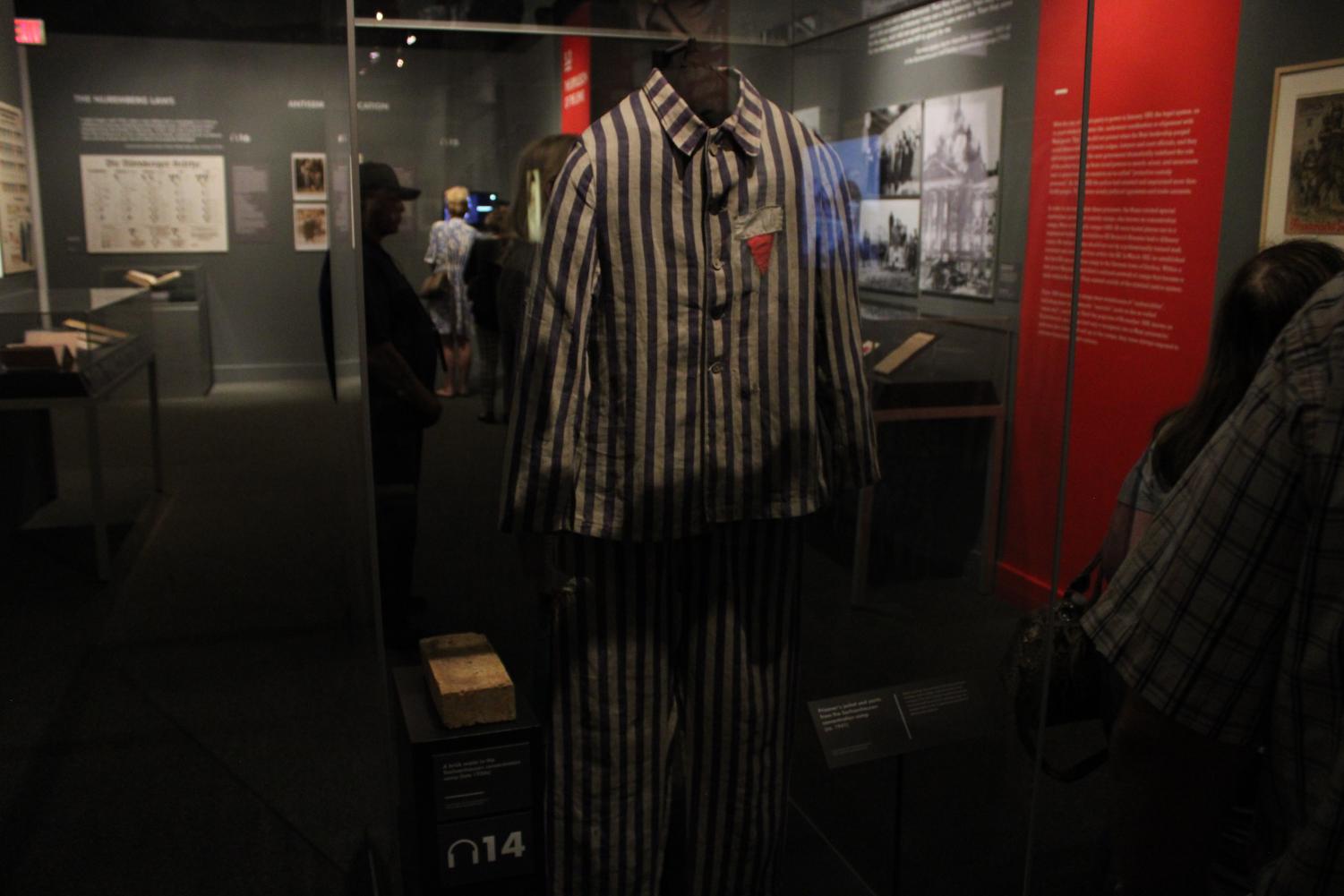
The uniforms worn by Auschwitz prisoners were marked with varying colors and triangles on the right side to differentiate between the various targeted groups throughout the Holocaust —including homosexuals, Jewish people and Roma people.
During May, Moorpark College student Hayden Garnick visited the Auschwitz exhibit at the Reagan Library. Garnick had previously visited other Holocaust museums, exhibits and received prior education on Judaism from attending Hebrew school. When asked about the importance of acknowledging Jewish heritage, including its challenging history, Garnick emphasized that heritage is an integral part of one’s identity.
“[Heritage is] a part of everybody, no matter what heritage that is,” Garnick said. “Your skin color, religion, your ethnic background all make you who you are, and celebrating that, not just exclusive to one month a year but every single day, is just really important.”
Many Auschwitz survivors emphasize the critical role that learning about the Holocaust plays in moving forward and preventing history from repeating itself. One such survivor is Lilly Malnik who is featured in a video interview towards the end of the exhibit’s guided tour.
“The world was quiet, it never said a word,” Malnik said. “This is why I am here today to talk about it, to let the world know. For them to know that it should never happen again, that my children and grandchildren and their children should never know from a life like that.”
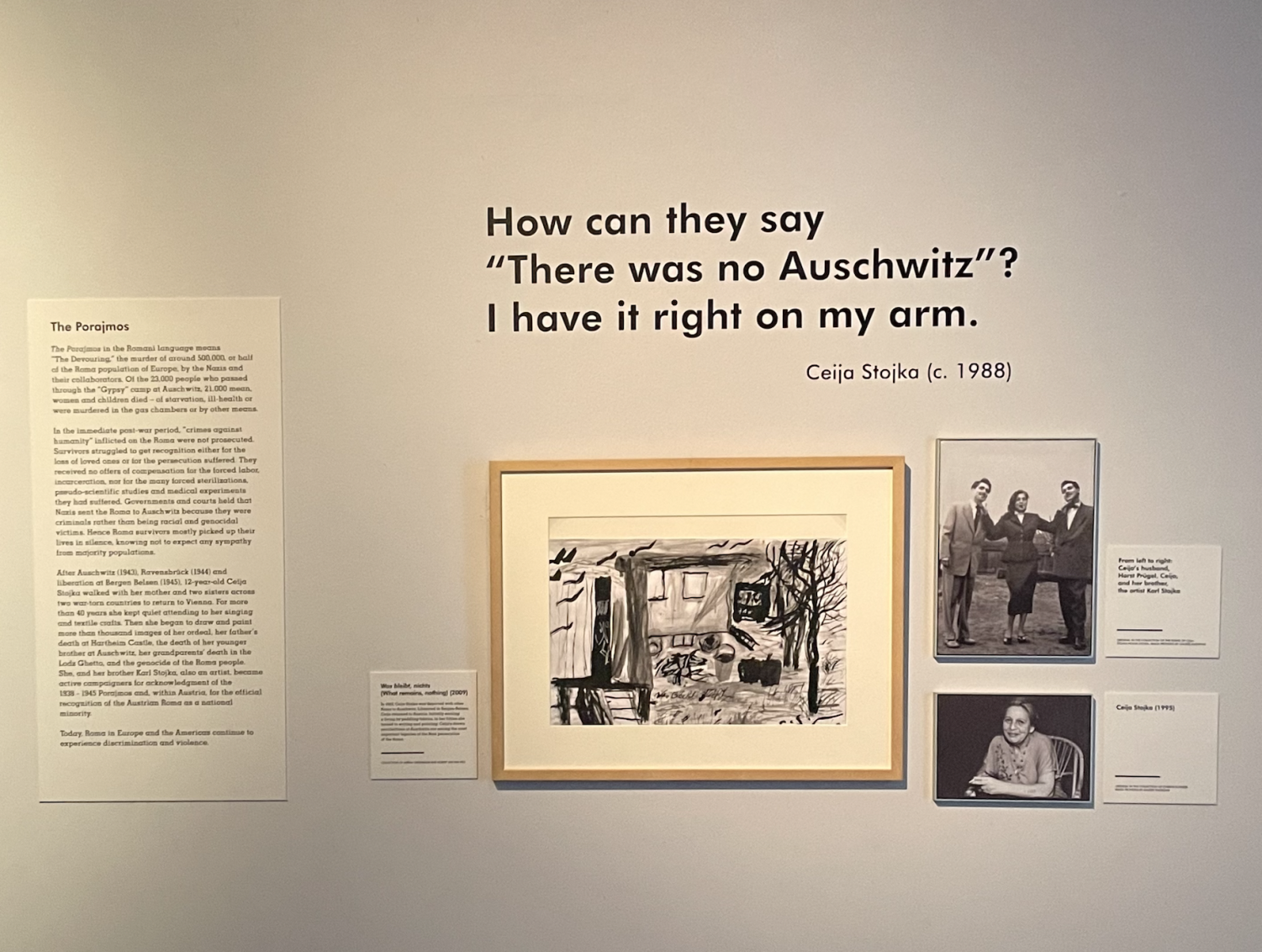
The Reagan Library’s Auschwitz exhibit highlights the resilience of the Jewish community. Alongside displaying somber artifacts, the exhibit showcases a wide array of culturally significant items and stories, reminding visitors that Judaism persisted in spite of the Holocaust.
At Moorpark College, approximately 100 undergraduate students identify as Jewish. Garnick, a Jewish student at Moorpark, discovered that the college provides resources for Jewish students to connect with one another.
Naomi Feldman, a second-year Moorpark College student, established the Moorpark College Jewish Club to foster connections among Jewish students and offer a space for all interested students to learn about the community.
Feldman started the club as she perceived a lack of Jewish presence on campus. Feldman asserted that Jewish representation matters even within the context of a community college.
“[The Jewish club] is all about building community and connections with Jewish peers, though it is open to students who just want to learn about Judaism as well,” Feldman said.
Feldman highlighted the personal significance of the “Auschwitz: Not long ago. Not far away” exhibit and expressed the need for recognizing and celebrating the heritage and culture of Jewish people within Moorpark and its surrounding communities.
“It is so important to me to highlight the history of Jewish people and what we have gone through, and to celebrate that,” Feldman said. “That’s like the whole point of Judaism, most of our holidays are about how we persevered through oppression. It’s so important to just highlight and celebrate that.”
While Jewish American Heritage Month is coming to an end, the Reagan Library’s doors remain open for those seeking to learn more about the Holocaust, antisemitism’s origins and Jewish culture and identity.

